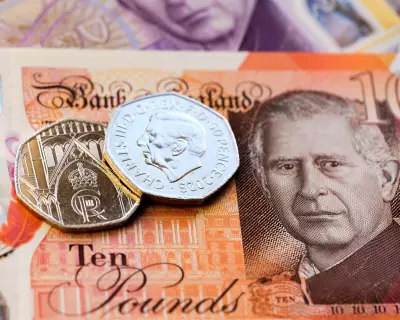
British consumers are being put on high alert today as the annual Black Friday shopping frenzy gets underway, with experts warning of a dual threat from sophisticated online fraud and deeply misleading special offers.
The Rising Threat of Black Friday Fraud
Retailers have warmly adopted America's traditional post-Thanksgiving spending spree, launching a barrage of promotions to lure shoppers. However, the public needs to stay sharp. The UK's National Cyber Security Centre (NCSC) has issued a stark warning about the increased risk of fraud, particularly as AI technology makes it harder to distinguish genuine websites from convincing fakes.
Jonathon Ellison, the NCSC's director for national resilience, explained that this period is prime time for cyber criminals. He stated: "This is … a time when cyber criminals seek to exploit our increased spending, using trusted brands, popular products, and current events to deceive people into clicking malicious links or sharing personal and financial information." Shoppers are advised to be immediately suspicious of any unrealistic prices or requests for direct bank transfers.
Most Black Friday 'Deals' Are a False Economy
Beyond the risk of outright fraud, a major investigation by consumer group Which? has exposed the harsh reality behind many so-called bargains. Their research found that a staggering 83% of products advertised as Black Friday deals were the same price or even cheaper at other times of the year.
Which? tracked 175 items from eight major retailers in the year to May. The analysis revealed that the vast majority of these items could be purchased for an equal or lower cost outside the four-week Black Friday promotional window.
Reena Sewraz, Which? retail editor, delivered a blunt assessment: "Our research exposes the harsh truth: for the majority of shoppers, Black Friday is a false economy. Retailers are relying on hype and urgency to push products that are the same price, or even cheaper, at other times of the year."
How to Shop Safely and Smartly
The nature of Black Friday has also shifted dramatically. Unlike a decade ago, when chaotic scenes of in-store scuffles over cheap electronics made headlines, the event is now predominantly an online operation. This change in shopping habits makes vigilance against digital scams and inflated discounts even more critical.
Which? offers clear advice for navigating the sales: while genuine deals do exist, they can be few and far between. Their experts recommend that shoppers take their time, avoid being swayed by clever marketing, and always conduct thorough research before making a purchase.
The key takeaway for UK consumers is to approach Black Friday with a healthy dose of scepticism. Protect yourself from cybercrime by verifying website authenticity and payment methods, and protect your wallet by checking the historical price of any 'bargain' you are tempted to buy.





